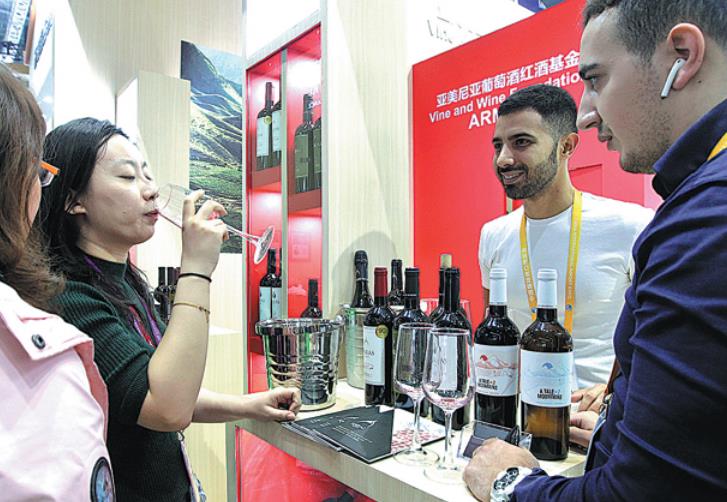Exhibitors eye ample opportunities from China consumption upgrade


From basic soaps to a wide collection of scented personal care products, from standard teabags to smart tea-making machines that can brew the beverage like a veteran tea master, and from purchasing basic apparel to shopping for world-class designer items as an expression of personal identity, consumption upgrades are taking place in every aspect of people's lives in China.
While it has posed great challenges for global conglomerates and foreign brands who want a share of the Chinese market, leading them to closely follow, if not lead, the nation's distinctive consumption trends, enormous opportunities also follow, as exhibitors at the second China International Import Expo's lifestyle area agree.
A new section based on the fashion and consumer goods area of the inaugural expo last year, the lifestyle area is home to more than 800 exhibitors from 87 countries including big names such Kering Group, Unilever and Lego. Exhibit categories have also diversified, ranging from Czech crystalware and Pakistani wool carpets to Indian aromatic incense.
"First, one needs to have a life, and gradually there is the luxury of choosing a lifestyle. And the historic moment we are now having is that the vast majority of Chinese are exploring a lifestyle of their own," said Zeng Xiwen, vice-president of Unilever in North Asia.
"In the course of such choices, business opportunities emerge, no matter if it's a bottle of shampoo or the flavor of a popsicle, which all help to define the lifestyle one wants to lead," he added.
Among the upward of 30 brands the company debuted at the first expo, one-third have already been put on the shelves of China's retail outlets, either brick-and-mortar or e-commerce.
This year, with another 12 brands selected and showcased, Zeng is confident that the company could further and better cater to the increasingly diversified needs of Chinese consumers, and therefore, facilitate even more robust growth.
"In the past, there were three 'big' elements for consumers goods to be a bestseller in China - big brands sold at big stores in big cities. But today, none of these three work," said Zeng, one of the first employees of the global behemoth in China, which entered the market in the late 1980s with Lux soap and Wall's ice cream.
But today, as Chinese consumers have increasingly personalized preferences, the company is also catching up and adjusting its strategies.
At the expo this year, it brought Grom, an Italian gelato brand known for using 100 percent natural ingredients, in response to the health-conscious diet pursued by many people. For personal care, it introduced Love Beauty and Planet to meet the rising demand eco-friendly products, which Chinese shoppers are equally mindful about.
A report from Boston Consulting Group said that the consumption structure of Chinese residents has assumed a greater resemblance to that in developed economies. The percentage of daily necessities such as food would drop significantly, while spending on optional products and experiences increases.
Quoting figures from the Economist Intelligence Unit, the consultancy projected that by 2021, China's consumption market would surpass $6.1 trillion, up by $1.8 trillion from 2016. The sheer growth volume in the half-decade could reach the size of the British consumption market in 2021.
But instead of generalizing the growth engine as "middle-income shoppers", more specific demographics have been broken down. There are "young people in small towns", "millennial generations" and "silver-haired retirees", Zeng said.
Cai Jinqing, China president of Kering Group, the parent company of Gucci, Saint Laurent and Bottega Veneta, has a different perspective.
"Chinese consumers are demanding and looking for an upgrade. And such an upgrade is not only about what they are shopping for, but also the production process of everything they shop for, which is very much about sustainable and responsible development," said Cai.
This has also inspired the French company to devote an exclusive space at its 300-square-meter booth at the expo to its sustainability projects. The space, known as a "sustainability lab", highlights the company's investment in China's homegrown startups that focus on recycling waste for dyeing materials.




































